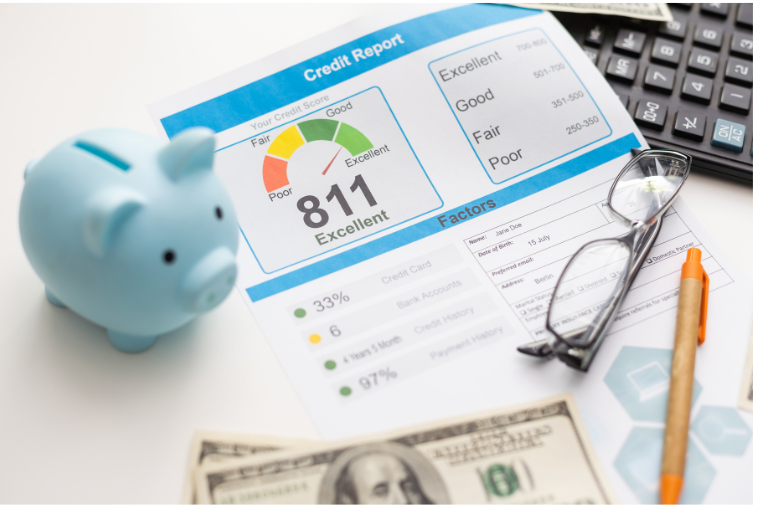Your cart is currently empty!

What You Need to Know to Raise Your Credit Score by 100+ Points
Posted by:
Crystal
|
On:
|

A good credit score is a powerful tool that can open doors to financial opportunities, such as lower interest rates on loans, credit cards with better rewards, and greater financial security. But how do people achieve and maintain good credit?
I can personally relate to the challenge of maintaining good credit. When I was 18 years old, I received several credit card offers. I opened a couple of credit cards with the intention of managing them correctly. After about a year, I quickly realized I had no idea what I was doing, and it took several years to repair the damage. Unfortunately, my experience is not unique.
Since repairing my credit, I have incorporated some habits that have helped me to maintain a good credit score for almost a decade. Here are 10 habits that people with good credit practice often:
1. Pay Bills on Time
Whether it is a credit card payment, a loan installment or even a utility bill, people with good credit understand the importance of making timely payments. Late payments not only can have a significant negative impact on your credit score, but they can stay on your credit report for years.
Tip: Set up automatic payments for recurring bills to avoid forgetting about payments and incurring late fees.
2. Keep Balances Low
People with good credit are always mindful of their credit card balances and keep it well below their credit limit. Typically, they aim to keep their credit utilization ratio below 30%. When only a portion of their available credit is used this demonstrates to lenders that they are managing their credit responsibly without overextending themselves.
Tip: Aim to pay your credit card balances off in full each month to maintain a low utilization ratio. This also allows the avoidance of interest.
3. Live Within Your Means and Use your Credit Responsibly
People with good credit are also mindful of how they use credit. They avoid impulse purchases on credit and only charge what they can afford to pay off in full when the bill arrives. Using credit responsibly helps avoid debt accumulation. This shows lenders that they can manage debt properly.
Tip: Try the “48-hour rule” for large purchases – wait 48 hours before deciding if you truly need it. Also consider how you will be able to pay the bill when it arrives. This helps avoid impulse buying that could negatively impact your credit.
4. Reconcile Finances and Budget Regularly
People with a good credit score review their finances to ensure their budget accounts for timely credit card payments. When they review their finances, they prioritize paying their credit card balances on time. They set aside funds in their budget specifically for credit card payments and track spending to stay under 30% of available credit. Regular reviews also help prevent overspending and ensure they remain in control of their finances.
Tip: Set aside a dedicated time each week or month for a “finance check-in.” During this time, review your spending, track your expenses, update your budget, and ensure you’re on track with your financial goals. You can use tools like spreadsheets or budgeting apps to make this process easier.
5. Monitor Credit Report Regularly
They understand that keeping track of their credit report is vital to staying on top of their credit health. They check for inaccurate information, fraudulent activities, or accounts they may have forgotten about. Monitoring credit can help to catch issues early, giving them time to address them before they negatively impact their finances.
Tip: Use services that provide free access to your credit report or sign up for credit monitoring.
6. Limit Credit Inquiries
When applying for new credit, it triggers a hard inquiry into a credit report. Applying for too many credit accounts in a short period of time can negatively impact a credit score. People with good credit only apply for new credit when necessary and after carefully considering the impact on their credit.
Tip: If you need to apply for new credit, try to do it within a short period (e.g., 30 days) to minimize the impact on your credit score. In FICO’s credit scores, hard inquiries related to mortgage, auto loan and student loan applications are entirely ignored 30 days from the date of the inquiry. If you settle on a loan during that 30-day period, your scores will not be affected by inquiries. FICO may record multiple inquiries for the same type of loan as a single inquiry if they’re made within a certain window, which is typically about 14 days.
7. Pay more That the Minimum Payment
Paying the minimum payment only helps to avoid late fees. Often people with good credit make extra payments on credit cards or loans to pay down their balances faster. Paying more than the minimum balance reduces debt and interest paid and helps maintain a strong credit score.
Tip: Aim to pay off your credit card balance in full each month to avoid interest. If that’s not possible, try to pay as much as you can above the minimum payment.
Today, I’m proud of the progress I’ve made, and I continue to use the strategies that helped me rebuild my credit. It wasn’t an overnight process, but with patience and consistency, I’ve been able to achieve a strong credit score and the financial freedom that comes with it.
